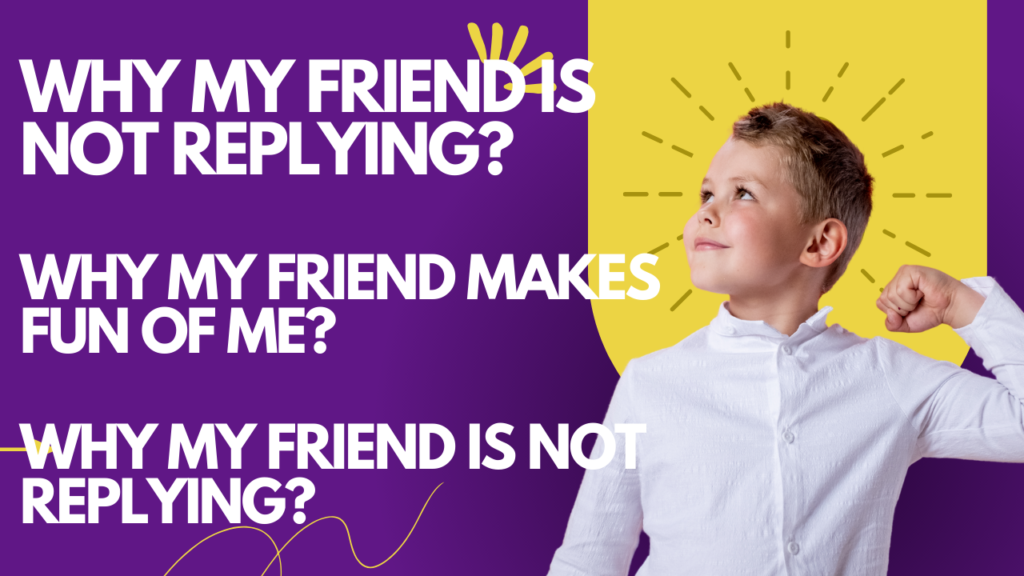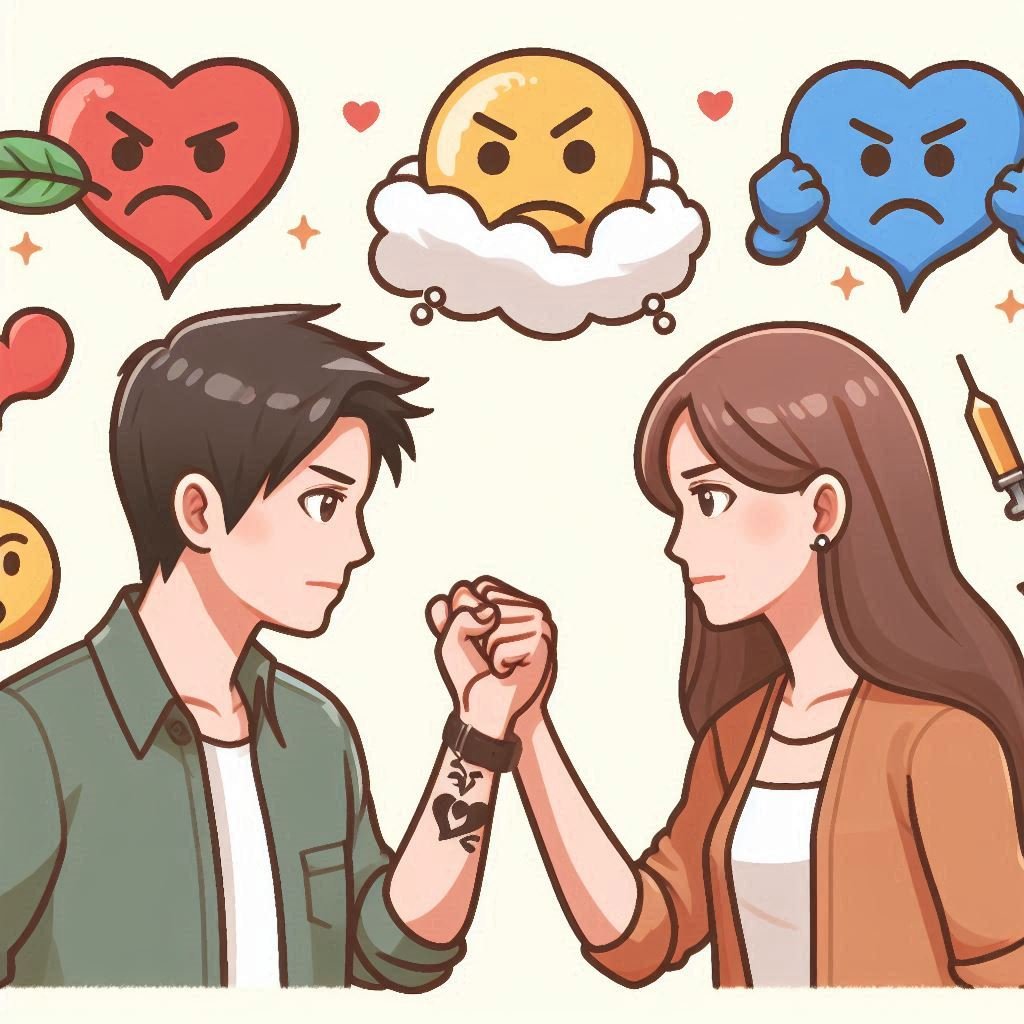Frequently Asked Question – Wisher
Why my friend is ignoring me?
When a friend seems to be ignoring us, it can be confusing and hurtful. There are many reasons why this might be happening, and understanding them can help us navigate our feelings and approach the situation with care. One possibility is that they’re going through something tough emotionally. We all have moments when life gets overwhelming, and during those times, some people tend to withdraw rather than reach out. If your friend is dealing with stress, sadness, or personal challenges, they might be struggling to find the energy to communicate.
Life changes can also play a big role. Maybe your friend has just moved to a new city, started a demanding job, or is going through a major transition like a breakup. These events can be all-consuming, leaving little time or mental space for anything else. It’s not that they don’t value your friendship, but they might be focused on adjusting to their new circumstances.
Another factor could be new relationships. When someone starts a new romantic relationship or forms a close bond with another friend, they might naturally spend more time with that person. It doesn’t mean they care about you any less, but the dynamics of their social circle might be shifting. Additionally, if there’s been a recent disagreement or misunderstanding between you two, they might be avoiding communication to steer clear of confrontation.

In times like these, it’s important to approach the situation with empathy. Reaching out with a gentle message that shows you care and are open to talking can be a good first step. If they don’t respond, giving them some space might be the best approach. Reflecting on your friendship and any recent events can also provide insight and help you decide how to move forward. Remember, friendships, like any relationship, go through phases, and understanding these dynamics can help you handle them with compassion.
Why my friend makes fun of me?
If your friend is making fun of you, it’s natural to feel hurt or confused. There could be several reasons behind their behavior, and understanding these might help you navigate the situation more effectively. Sometimes, people make fun of others to deal with their own insecurities. They might feel better about themselves temporarily by putting someone else down. This can be especially true if they’re struggling with self-esteem or trying to boost their social status.
In some cases, your friend might be mimicking behavior they’ve seen growing up. If teasing was common in their environment, they may not realize how their words affect others. For them, it might seem like a normal way to bond or fit in, even though it might come across as hurtful. Additionally, some people use mockery as a way to exert control or feel powerful, especially if they’re feeling powerless in other areas of their life. Unfortunately, this can lead to behavior that feels more like bullying than friendly teasing.
A lack of empathy can also be a factor. Your friend might not fully grasp how their jokes make you feel, or they may see their teasing as harmless fun when, in reality, it crosses a line. Miscommunication can easily lead to situations where one person thinks they’re being playful, but the other feels disrespected or belittled.
If this behavior bothers you, it’s important to communicate your feelings. Let your friend know which jokes are okay and which ones are hurtful. Setting clear boundaries is key, and a true friend will respect them. If the teasing continues despite your discomfort, it might be time to reassess the friendship. It’s crucial to surround yourself with people who support and uplift you. In some cases, teasing back in a light-hearted way can diffuse the situation, but it should be done carefully to avoid escalating any hurt feelings.
By understanding these dynamics, you can approach the situation constructively and make informed decisions about how to move forward in your friendship.
Why my friend is not replying?
If your friend isn’t replying to your messages or calls, it’s natural to feel concerned or even a little hurt. But before jumping to conclusions, it’s important to consider that there could be several reasons behind their silence. Approaching the situation with empathy and understanding can make a big difference in how you navigate it.
One possibility is that your friend is simply busy. Life can get hectic with work, school, or other commitments, and sometimes people unintentionally neglect their messages. They might be prioritizing urgent matters and mean to get back to you later, but time slips away. Another possibility is that there’s a technical issue. Maybe their phone or internet connection is acting up, and they aren’t even aware that you’ve been trying to reach them.
Personal matters could also be at play. Your friend might be dealing with something serious, like family issues, health problems, or emotional stress. In such times, they might need space and may not feel up to responding. If there’s been a recent disagreement or misunderstanding between you two, they might be avoiding the situation to process their emotions. Lastly, it’s worth considering that your friend’s priorities may be changing. As people grow, their interests and focus can shift, and they might be investing more time in new relationships, hobbies, or goals.
So, what can you do? First, give them time and space. Bombarding them with messages can come across as overwhelming. If you’re really concerned, consider sending a direct, kind message expressing your care and desire to understand what’s going on. Reflect on the overall health of your friendship—whether this is an isolated incident or part of a pattern might influence your approach. Most importantly, respect their boundaries. If they need time, give it to them, and if the lack of response continues and you feel the friendship has run its course, consider seeking closure with a heartfelt message.
Friendships, like all relationships, can change over time, and that’s okay. What matters most is handling the situation with maturity, empathy, and respect for both yourself and your friend.
-
#109 What to do if your girlfriend is overweight?

What to do if your girlfriend is overweight? Supporting a girlfriend who is navigating her feelings about being overweight is a delicate journey that requires compassion and understanding. Start by fostering open communication. Encourage her to share her feelings about her weight without fear of judgment. Let her know you’re genuinely there to listen and…
-
#108 How to tell if someone doesn’t care about you? Best solution

How to tell if someone doesn’t care about you? Recognizing when someone doesn’t truly care about you can be one of the most painful realizations, but it is essential for your well-being. A significant sign is their lack of effort and commitment. If they never prioritize your needs, avoid making meaningful commitments, or refuse to…
-
#107 How to know if a relationship is over? Best

How to know if a relationship is over? Relationships, like any emotional journey, often go through phases of struggle. Yet, when certain signs become prevalent, it may indicate the relationship is nearing its end. One major red flag is constant fighting. Frequent, heated arguments are more than just disagreements; they may reflect deeper issues between…




2 thoughts on “#22 Why my friend is ignoring me? Best Solution”